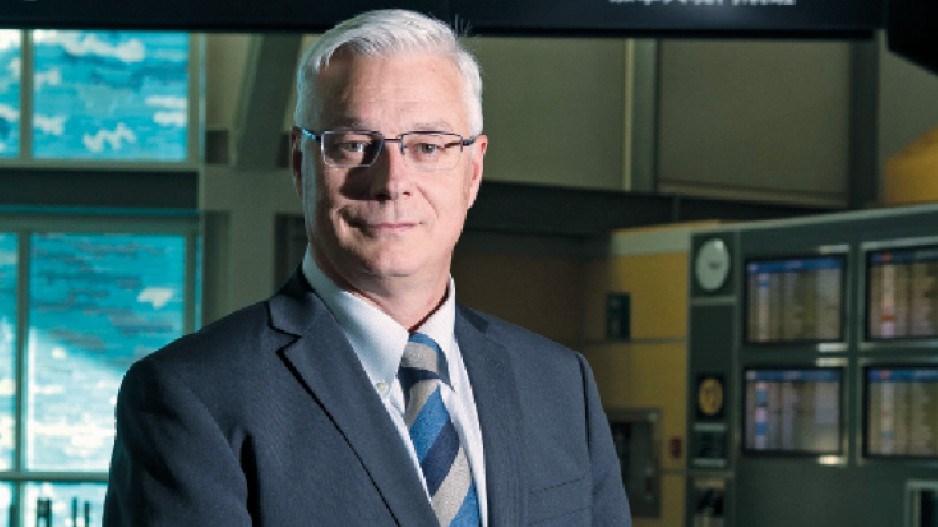Vancouver International Airport Authority CEO Craig Richmond used his annual appearance before Vancouver city council as a soapbox to oppose the potential sale of the airport.
A February report for the federal government by David Emerson, the airport authority’s first CEO from 1992 to 1997, recommended selling the country’s largest airports to raise money for other infrastructure projects.
“We just don’t agree; selling Canada’s airports is not in the best interests of Canadians, especially Canadian air travellers, because it will lead to higher costs, lower service levels, less capital investment and a loss of community control,” Richmond told city council October 18.
Emerson’s Canada Transportation Act Review recommended moving within three years to a share-capital structure for Canada’s largest airports “with equity-based financing from large institutional investors, accompanied by legislation to enshrine the economic development mandate of airports and to protect commercial and national interests.”
The report said the government should establish investment thresholds, foreign ownership limits and tests of public interest and national security; maintain protections against insolvency that are already in airport leases so that assets would revert to the Crown; and enact “so-called light-touch regulations” that cover fees and charges and hand the oversight to the Canadian Transportation Agency.
In 1992, Transport Canada gave control of YVR to a private, not-for-profit board that holds a lease through 2072. YVR relies on taxing passengers for much of its revenue and reinvests the profits in the building. Richmond speculated a sale could fetch $5 billion or more.
“The new term in vogue in Ottawa is ‘asset recycling,’ and so the idea of somehow capitalizing an infrastructure bank by selling off the airports has real appeal because there would be a large cheque attached,” Richmond said. “We think Canadians, British Columbians have already paid for the airport, $3.1 billion worth of infrastructure; if it’s nationalized and sold off to a consortium of pension funds and investment banks you’ll end up paying again.”
During the 2015 election campaign, Prime Minister Justin Trudeau promised to spend $60 billion over 10 years on infrastructure. His Liberal Party’s first budget earlier this year forecast a $30 billion deficit.
Vision Vancouver Coun. Geoff Meggs successfully proposed sending a letter of opposition on behalf of city council to Transport Minister Marc Garneau.
“The airport authority is responsive to public concerns as well as being efficient economically,” Meggs said. “We don’t want to take a chance with that.”
Canada’s second biggest airport counted 20.3 million passengers last year, up 5% from 2014. Richmond said it is forecasting 21.5 million for 2016.
The Air Canada hub added five new destinations this year, including Delhi, Brisbane, San Jose, San Diego and Chicago.
Richmond said the airport is “keen” on adding routes to South America and the Middle East, but relies on the federal government to negotiate bilateral agreements. He said some 80,000 passengers a year from Vancouver fly from Sea-Tac International Airport on Emirates to Dubai.




